Mental health: Staff fear for future of children's education centre in Radlett
- Published
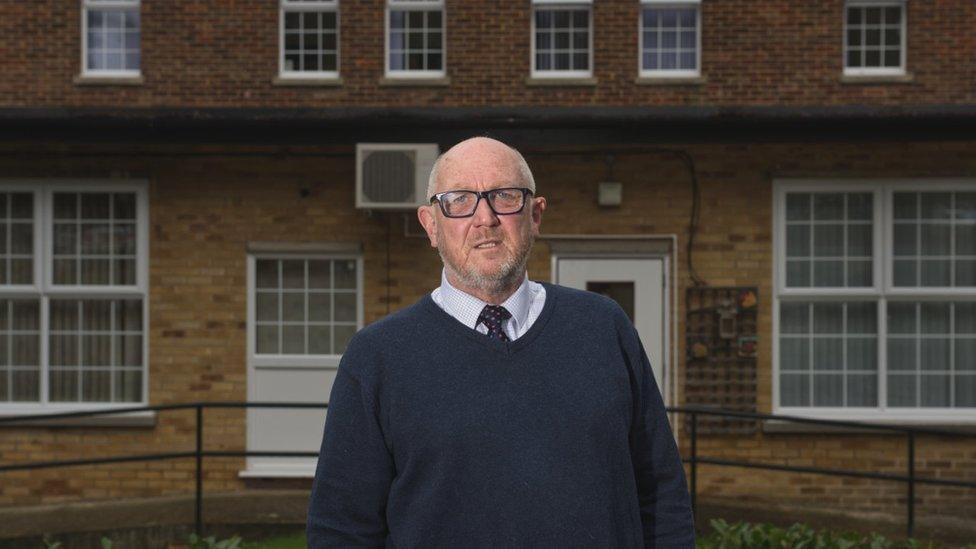
Nigel Hughes, a science teacher at Forest Heath for 12 years, feared a reduction in staff would damage the education provision for some of the area's most vulnerable young people
The austere exterior of the Forest House Education Centre in Radlett, Hertfordshire, stands in stark contrast to its interior, where the walls teem with painted guitars, artwork, sculptures, hand-made pottery fired in the on-site kiln, and yet more painted guitars and ukuleles.
The centre is a few seconds' walk from Forest House, a 16-bed inpatient child and adolescent mental health (CAMHS) unit, whose patients come here for their education.
The students are very vulnerable with conditions ranging from psychosis to serious eating disorders to those who have suicidal thoughts.
Depending on their treatment, pupils' time here will vary from just a couple of weeks to nine months or more. As well as the inpatients from the CAMHS Tier 4 Forest House unit, the centre educates day pupils with mental health issues.
Experts say demand for such facilities across the country is far outstripping supply with local authorities and schools navigating often crippling budget constraints.
The Department for Education (DfE) said the minimum cost per pupil in specialist education settings was £10,000 per year, but it was often more in CAMHS Tier 4 centres like Forest House "due to the bespoke programmes needed for each child".
The Association of School and College Leaders claim specialist educational provision is in crisis, and has been for "several years".
And yet, despite the demand, the future of Forest House Education Centre is uncertain.
Staff at the centre have recently learned their jobs are at risk. It is understood they were told verbally that the current team of seven could be whittled down to just two teachers and a mental health manager on site or at the hospital.
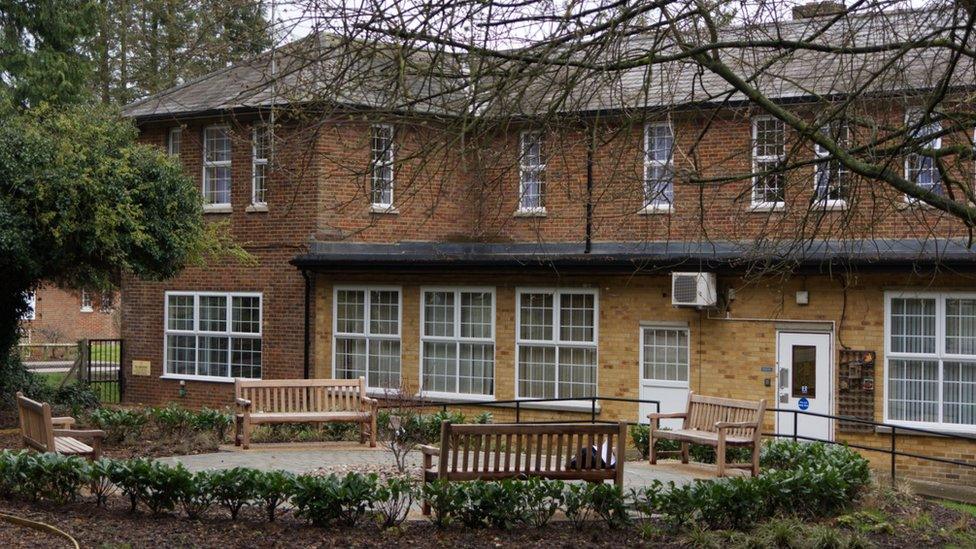
The Forest House centre is currently part of St Luke's, a special educational needs school in Redbourn
The BBC put those claims to Hertfordshire County Council which would only confirm it was "reviewing options" for the centre.
Although the council has yet to state how much it spends annually on Forest House Education Centre, it is understood it costs about £300,000.
The current idea being investigated by the council is for the centre to be taken over by Roman Fields Academy, a school in Hemel Hempstead which mostly teaches children with autism, external and which is part of the James Marks Academy Trust.
Roman Fields was judged outstanding in its most recent Ofsted inspection.
However, staff at the centre say that while they have enormous respect for what Roman Fields does, especially in its support for pupils with autism, they feel the needs at their centre are very different.
And the reduced staffing levels being suggested, they say, could be devastating.
Our expertise is keeping our young people on the educational pitch while they are in a very serious place.
Former airline pilot Nigel Hughes has been a science teacher at Forest Heath for 12 years.
He said: "To reduce the staff as is being proposed, you cannot safely run, provide a curriculum following CQC guidelines and deliver quality outcomes with that staffing level here.
"They [Roman Fields] are outstanding in the work that they do, but they are autism specialists... these are young people [at Forest House] who have developed serious mental illnesses.
"They are saying they will do this, they will do that. But with two members of staff our concern is about safeguarding - two teachers with a full centre will have safeguarding issues.
"What you see here is established best-practice, and it works.
"What they are saying is that other support will be coming in from Roman Fields to cover the shortfall, but you've got to be here.
"They will not be able to do what we do."
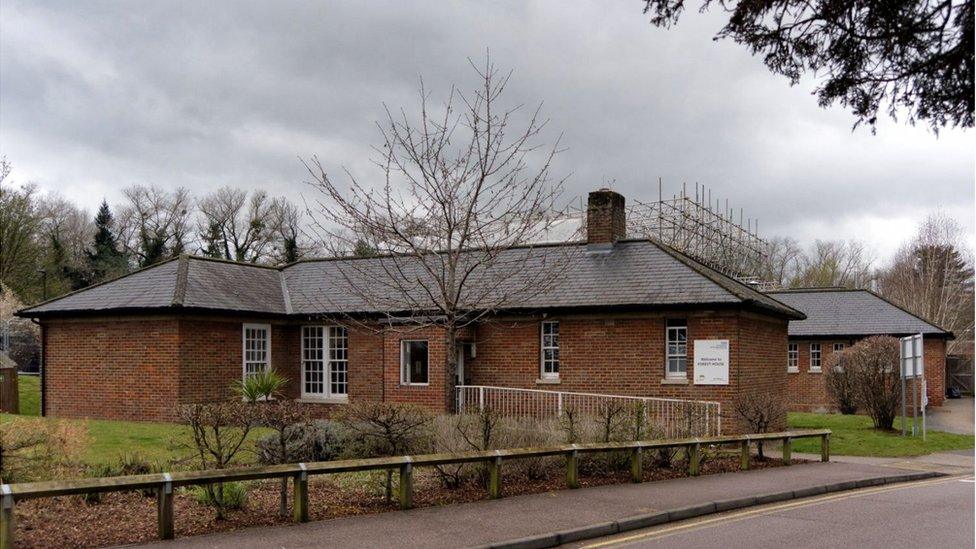
Most of the young people at the education centre come from the neighbouring Forest House inpatient unit
The national picture for the way education is delivered for those in CAMHS Tier 4 facilities is complex.
According to the DfE, all CAMHS Tier 4 units have to provide education to patients during the normal academic term. But how this is done varies, from centres like Forest House Education Centre to special schools to independent sector providers, external.
When the BBC asked the DfE how many under 18s were educated in CAMHS Tier 4 facilities in the last year, it said data was not available.
The Forest House centre is currently part of St Luke's, a special educational needs school in Redbourn, near St Albans.
In 2020-2021, St Luke's spent £3.26m putting it over budget by nearly £22,000. Governing body meeting papers suggest that deficit has risen to as much as £498,123, external.
It is understood the county council has denied its moves to transfer the centre to another provider was about saving money.
Instead, the local authority says it wants to "improve outcomes" for pupils at the centre.
Mr Hughes is dubious.
"The centre has worked for years with terrific outcomes," he said.
"By this merger they are saying there will be better outcomes, but they can't say what those outcomes are. What they want to do is railroad this through.
"It almost feels done and dusted."
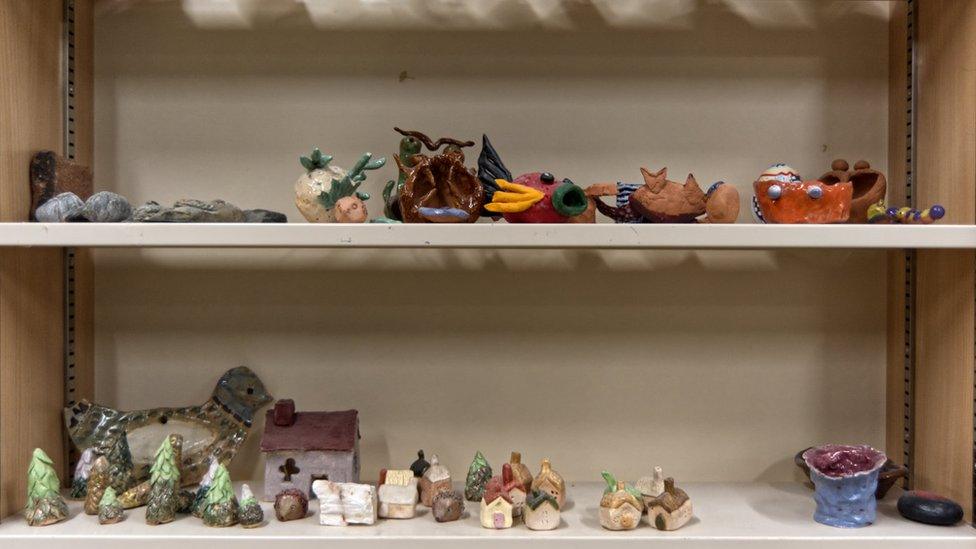
The education centre has its own on-site kiln which young people use to create their own pottery pieces
While St Luke's was found overall by Ofsted to be in need of improvement, external, inspectors praised the work done at Forest House finding the staff delivered a "good standard of education within this setting" where pupils "achieve well".
To create a centre where pupils "achieve well" while they are in Tier 4 inpatient mental health care was not an easy task, said Mr Hughes.
"It is quite tough to hear about what the young people have been through," he said.
"We are not an alternate provision for schools, we are a hospital education system.
"Our expertise is keeping our young people on the educational pitch while they are in a very serious place."
The learning day, for example, begins with visits to the wards.
Morning meetings between medical teams and education staff are held to review patients and assess how they are with regard to their care plan and being able to attend school that day.
When they cross the road to the education centre, staff do their best to keep it as much like a school as possible.
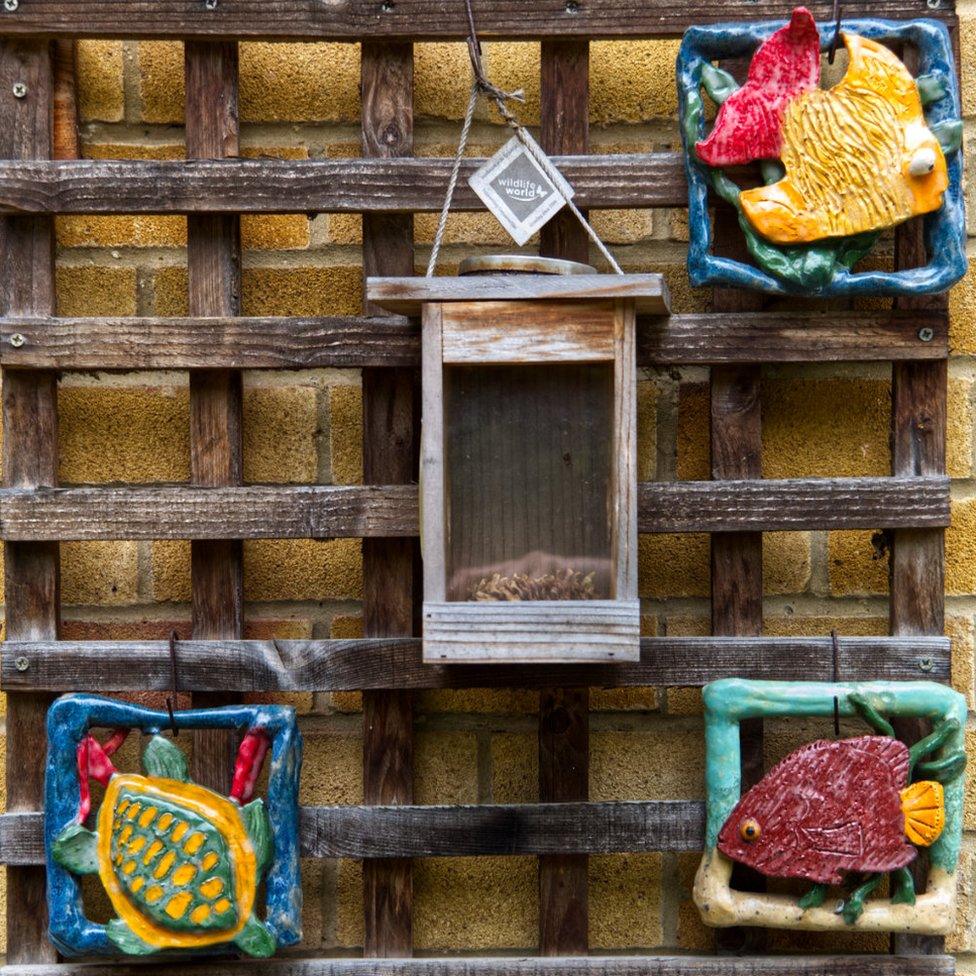
Students made artworks to accompany a birdbox for the outside of the centre building
The days are highly structured with a strong work ethic, said Mr Hughes.
"The last thing you want is for this place to be a bubble away from the outside world," he said.
"They get structured classroom teaching and it is a lot of fun and we do amazing activities."
A key part of the what the education centre does is readying young people for their return to mainstream education after discharge.
Whatever is decided in terms of the future of the education centre is expected to come into effect by September.
A spokesman for the council said: "We are in the process of reviewing options for Forest House Education Centre to ensure the best education offer is available to the young people.
"No final decisions have been made and any changes that may follow will only be implemented in the best interests of those attending Forest House."
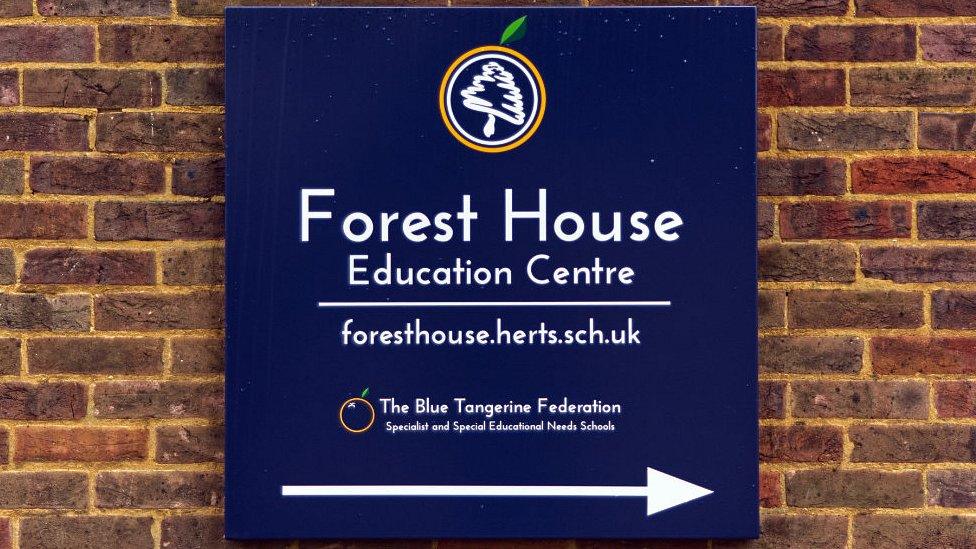
The county council said any changes would be in the "best interests" of those attending the centre
Geoff Barton, general secretary of the Association of School and College Leaders, said: "Funding for specialist provision has been in crisis for several years with the amount of funding available being comprehensively outstripped by demand.
"Two-thirds of local authorities have deficits in their school budgets as a result of high needs cost pressures.
"This situation is compounded by a lack of capacity in NHS services for children and young people with complex mental health needs which require specialist treatment.
"Waiting lists for these services are often very long, and in the meantime the condition of the young people concerned is likely to deteriorate.
"The government recently launched a green paper on special educational needs and alternative provision which proposes a system built on early and accurate identification of needs, with common standards on what support should be provided and when, and local partnerships to deliver that on the ground.
"We agree with those principles, but we are concerned that it has taken so long to reach this point - the government began this review three years ago - and full implementation of the green paper is some way off in the future."

Find BBC News: East of England on Facebook, external, Instagram, external and Twitter, external. If you have a story suggestion email eastofenglandnews@bbc.co.uk, external